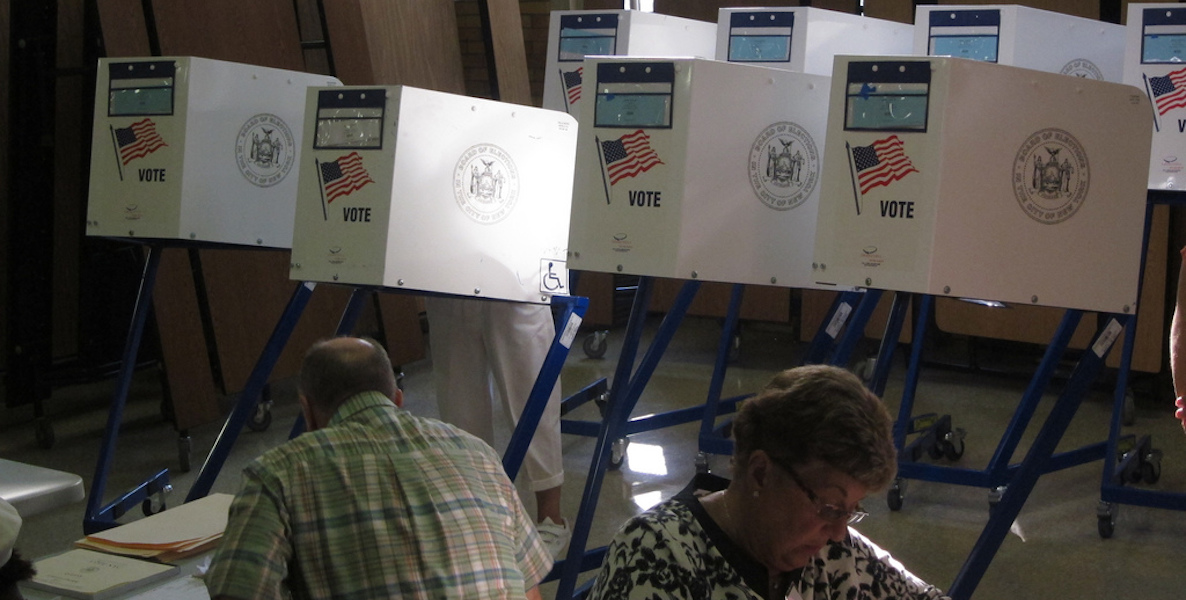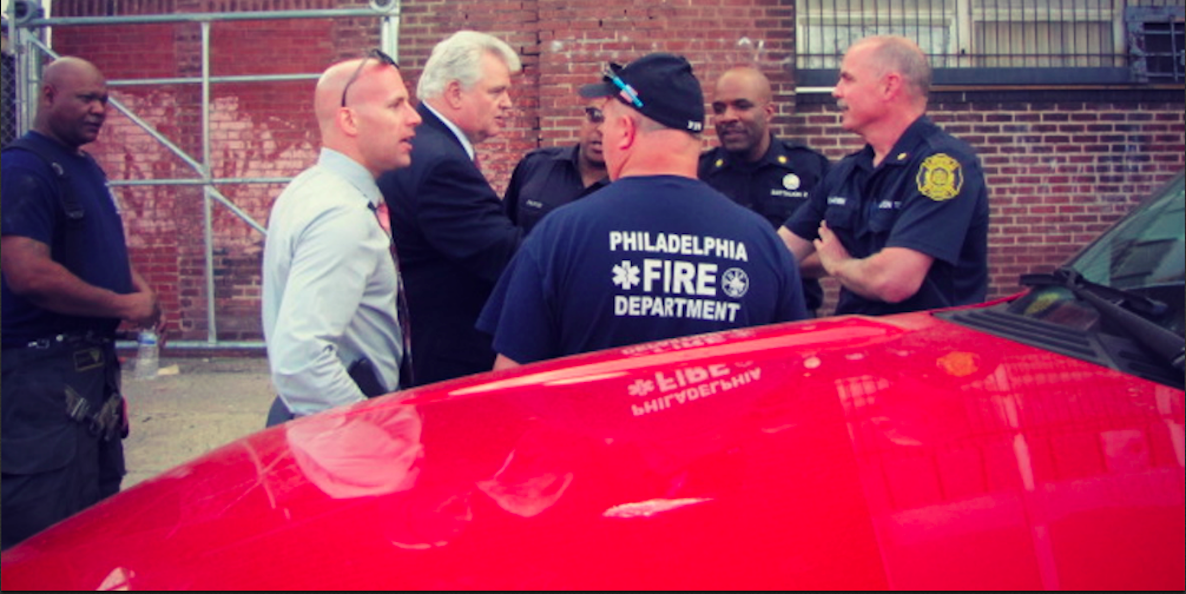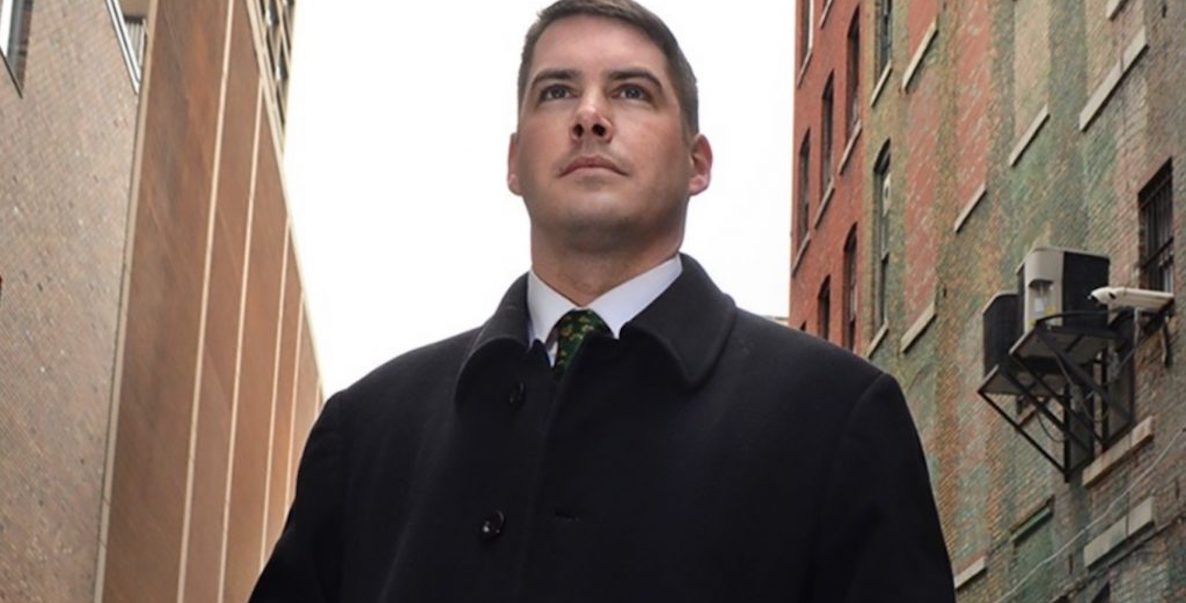There’s been a whole lotta celebrating among progressives since last week’s election. There was much for them to feel good about, including the Sikh who was elected mayor of Hoboken, New Jersey—once the stomping grounds of Frank Sinatra; the transgendered candidate who upset the author of Virginia’s bathroom bill in that state’s legislature, and the state of Maine resoundingly voting to expand Medicaid.
But it just may be that the most important development on election day—surely for us, here in the Peoples Republic of City Committee—was the mayoral election of a plain old white dude in Syracuse, New York. There, 38-year-old Ben Walsh, an independent candidate in a city where 56 percent of registered voters are Democrats, won a stunning upset, defeating Democrat Juanita Perez Williams, who was endorsed by Governor Andrew Cuomo and Joe Biden.
Be Part of the Solution
Become a Citizen member.It’s a fascinating story, and one with real lessons for Philadelphia. Walsh, whose father was a Republican congressman, registered as an Independent when he turned 18 years old as an act of familial defiance. He helped create the Greater Syracuse Land Bank and was a deputy commissioner for neighborhood and business development in the current mayoral administration of Democrat Stephanie Miner, whose tenure became known for publicly bickering with fellow Democrat Cuomo.
![]()
Williams, the Democratic nominee, ran on a conventional campaign narrative of personal empowerment. She, too, served in the Miner administration, as the city’s corporation counsel, before a falling out with Miner. On the campaign trail, Williams framed her story as one of “a little brown girl” who succeeded despite myriad race, gender and class roadblocks.
Eschewing personal narrative, Walsh’s message centered around driving economic growth and expanding the city’s tax base, but mostly he took aim at the political party system itself. “I think a lot of people in politics see politics as the end,” he said. “It’s all about winning and losing, and being loyal to your party. And that always turned me off.”
“We’re about to undertake a grand experiment,” Walsh said before a cheering crowd in the Hotel Syracuse ballroom. “To test whether or not we can set aside politics and instead work together, to test whether we can shed our decades of old pessimism.”
It was a theme he returned to during his election night speech. “We’re about to undertake a grand experiment,” Walsh said before a cheering crowd in the Hotel Syracuse ballroom. “To test whether or not we can set aside politics and instead work together, to test whether we can shed our decades of old pessimism.”
Walsh’s election night political reform rhetoric took me back nine years, when our own city swooned before Michael Nutter as he talked about a “new way, new day.” Remember those heady times? Nutter was a competent, successful mayor in his two terms, but not quite the agent of transformative change many of us hoped for back then. That was primarily because he lacked the political acumen to effectuate real reform. He still had to deal with a sclerotic city committee, thuggish union bosses, and none-too-bright City Council members; it didn’t take long into his mayoralty before you got the feeling that he knew he was suffering fools—and so did they.
But Walsh has a chance to succeed where Nutter did not, because Walsh exhibited stellar coalition building skills in the late stages of the campaign. On election night, after all, he was surrounded by prominent Democrats who endorsed him over their own party’s nominee, all citing his listening and bridge-building talents.
One of those endorsers was crucial. In the last month of the campaign, badly trailing Williams among black voters in the polls, Walsh was endorsed by Councilor-At-Large Helen Hudson, arguably the city’s most prominent African-American leader. “We can look at the national level and see with all the theatrics and screaming going on, that that’s not where we want to be,” Hudson said, making it safe for other Democrats to cross party lines. “Ben Walsh is a calm, quiet spirit, and for me, that’s what we need in a leader.”
When a group of Democrats held a “Dems for Ben” event and supporters for Williams disrupted it, shouting them down, the momentum swung toward Walsh. The Democratic nominee was just another shouting pol, and here, in contrast, was this serene candidate who didn’t owe anything to either entrenched party.
Is there a city better situated to borrow Walsh’s anti-Democrat and Republican party message than Philly? We’ve got a Democratic party that will use any means to maintain power—including endorsing indicted incumbents for reelection—and a Republican party that long ago gave up competing in local elections in return for the crumbs of Democratic patronage.
So what does this mean for Philly? First, it’s a reminder that succeeding at politics isn’t as easy as it may appear. It really requires a discreet set of skills, and we need look no further than our president, governor or former attorney general to conclude that just being an outsider is not enough. You also need to know how to build governing coalitions and strike deals with those who don’t agree with you. Yes, Walsh ran as an outsider, but he skillfully brought insiders along with him. (And two other under-40 candidates were elected to Common Council last week, creating the feel of a generational wave.)
Second, is there a city better situated to borrow Walsh’s anti-Democrat and Republican party message than Philly? We’ve got a Democratic party that will use any means to maintain power—including endorsing indicted incumbents for reelection—and a Republican party that long ago gave up competing in local elections in return for the crumbs of Democratic patronage.
![]() The electorate seems primed for a Walsh-like independent run, given that the number of independent and third party voters here has grown by 154 percent in the last two decades and now just about equals the number of registered Republicans in the city. (The trend extends nationally, as well, with 43 percent of voters calling themselves independents).
The electorate seems primed for a Walsh-like independent run, given that the number of independent and third party voters here has grown by 154 percent in the last two decades and now just about equals the number of registered Republicans in the city. (The trend extends nationally, as well, with 43 percent of voters calling themselves independents).
A transformative independent mayoral run in 2019 might just be the only way we’re going to get real change. “In Philly, everyone is tied to everybody,” says Brett Mandel, who twice ran unsuccessfully for City Controller. “Doing anything steps on somebody’s toes who is tied to everyone else. That’s why we don’t see any elected official standing up and saying Jewell Williams should step down as Sheriff because he’s accused of being a serial sexual harasser. If Helen Gym can go after Frank Rizzo but not Jewell Williams, what does it say about our ability to get anything done?”
Mandel has put his finger on the go-along-to-get-along Philly political culture. Will taking back governance of the schools lead to systemic reform that helps kids—which would require spending some significant political capital—or is it a way for district Council members to control the hiring of principals and steer bond work to favored insiders?
So let me ask you: Is there any one among us who fits the bill? Let’s find our Ben Walsh (though it would be way cooler if our Ben Walsh were female).
It’s probably a pipe dream, but the Syracuse results got me fantasizing about an independent candidate for mayor here in 2019, preferably one who could self-fund. She, like Walsh, would need to transcend politics and attract silent majority support by speaking calmly and reasonably, and also help elect a couple of change-minded City Council members. Sure, this election saw the rise of outsiders Rebecca Rhynhart and Larry Krasner. But, remember, in a corrupt one-party town, young and fresh newcomers have a way of becoming old and incarcerated after a couple of decades. (See Fattah, Chaka.)
So let me ask you: Is there any one among us who fits the bill? Let’s find our Ben Walsh (though it would be way cooler if our Ben Walsh were female). Email me your nominations for who should be our independent candidate for mayor in 2019 and I promise to report back after gauging their shock, disgust, or—one can only hope!—interest.






